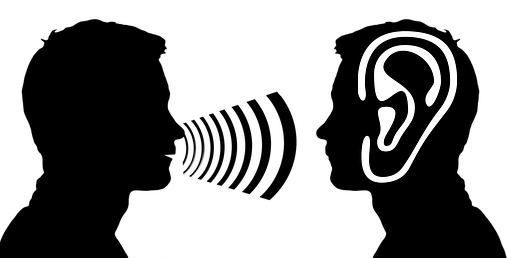Being the Ideal Dad to a Stressed out Teenager
Signs that your Child is Going Through Emotional Challenges
Additionally, your child might drop their interest and hobbies, and adopt risky behaviours that often land them in trouble. Some of the common risky behaviours that your child might take up include alcohol and substance abuse, engaging in bad company and developing a habit of staying out late no matter what you say about home time.
Being a Teen is Very Different Today
Besides the fact that your child might be going through some experiences that make them want to keep their distance from you, as a parent you may unwittingly contributed to that disconnection.
We all remember being teenagers ourselves, or we think we do. However, theirs is a very different, and much less certain, world.
They are facing many pressures we didn’t at their age, not least the pressures of social media and, particularly for our daughters, of a much more image conscious and sexualised culture.
Remember how annoying it was when your own parents said to you “When I was your age, we were never allowed to….” (fill in the dots)? The same holds a thousand times truer for your teen today. So above all, give them space to connect to, and communicate with, you.
The worst thing you can do is to close that communication down so they keep their problems to themselves.
Manage Your Own Smartphone Habits
Teens throughout the ages have accused parents of not understanding them, of not listening, of not being there for them.
In these days of social media, they may just be right. Especially if you work all day there is nothing like coming home and settling in front of a TV or a smartphone.
Resist the temptation.
Let them know that you wont force them to talk to you, but you will switch everything off (yes, even your smartphone) to hear them if they do want to talk. Don’t send them the message that you do not value your time with them.
Sibling Rivalry
Finally, teens are notorious for believing that you are unfair toward them and treat their younger (often easier to handle) siblings with favouritism. You won’t be the first parent to hear an angy teen shout “It’s NOT FAIR!!”
Be honest, you probably did it yourself.
Don’t get angry. Don’t try and defend yourself. Teens are not thinking from the logical part of the brain so logic, facts and justice won’t work. Your aim is to reassure them that they are safe, loved and accepted for who they are, and that you know you aren’t perfect.
Solutions to a Disconnected Parent-child Relationship
Communicate with your teen
Communication is key to maintain the connection between you and your anxious teen. The best way to communicate with your child is to ensure that you always keep your end of the communication lines firmly open. This creates confidence in them that each time they reach out to you, they will indeed get your undivided attention and sincere help without being judged.

Listen to your Teen without Judgement
Learn to listen to your child without judging them as this assures them of your love and care regardless of what they are going through. The last thing that a stressed teen needs is a parent who is judgemental and not ready to listen.
Unfortunately that also includes a parent that leaps in to impose what seems to be an obvious solution. Listen and rather than leaping in with actions they should take, just help them open up with empathy – “that must be so hard for you” instead of “I’m going to sort this out with your headmaster!” (unless there is a dangerous situation developing) and work towards a solution with them.
Easier said than done, I know.
But it is while you are listening, while you are working with them to identify a way forward, that you build their trust. This is when you can gently let them know where they can help the family out with behaviour changes. It is also at these times that you build the right for your teen to trust you with really serious stuff they might not, otherwise.

….WITHOUT JUDGMENT OR SHOCK OR ANGER
So good we said it twice.
Listen without judgement, shock or anger.
Control your emotions even when your teen has done an insanely inappropriate thing, as responding in anger might push them further away. However, if your teen develops the trust that they can talk to you even when they have done wrong and still get a hearing they are more likely to always reach out for your advice. More importantly, controlling your emotions assures them that they can always confide in you.
Establish a balance between your love and limits, so that they will develop the confidence of reaching out to you knowing that even if they have crossed a red line they will still be corrected in love.
And there is a lot of serious stuff going on. Self harm and suicide rates among teens are hitting the headlines all around the western world. The likelihood of your teen either harming themselves, or counselling others who are harming themselves, is unprecedentedly high. Very different from when we were teens.

Enjoy Fun Activities Together
Engage your child in their hobbies or any other activity that you both enjoy as a way of reaching out to them. Don’t always have a goal or a purpose other than just “hanging out”.Doing so helps to relieve the child from teen anxiety and teen stress and lets them feel cared for and loved. A child will always feel valued if you as their dad will spare time out of your busy schedule and spend it on them.
Don’t Be Afraid to Involve Professionals
The stigma against reaching out for help is fast dying, so don’t be afraid to encourage your teen to talk to a professional who specialises in mental health. A good starting point could be their doctor, or they may feel more comfortable identifying a teacher or welfare officer at school, or else a call to Childline or The Samaritans.
Conclusion
As a parent, you should always be willing to go the extra mile to ensure that you contribute to the well-being of your teenager and this can only happen by engaging them at various levels.
Communication is a key aspect of ensuring that there is a healthy relationship between you and your child. It will help them deal with teen stress, whenever they talk to you.
Sources of Help:
Childline: 0800 1111
The Samaritans 116 123
Feel free to visit Fegans for more information and drop a comment in case there is a need for further clarification. Be part of your child’s well-being by being proactive. Reach out to your child and hear them out.











